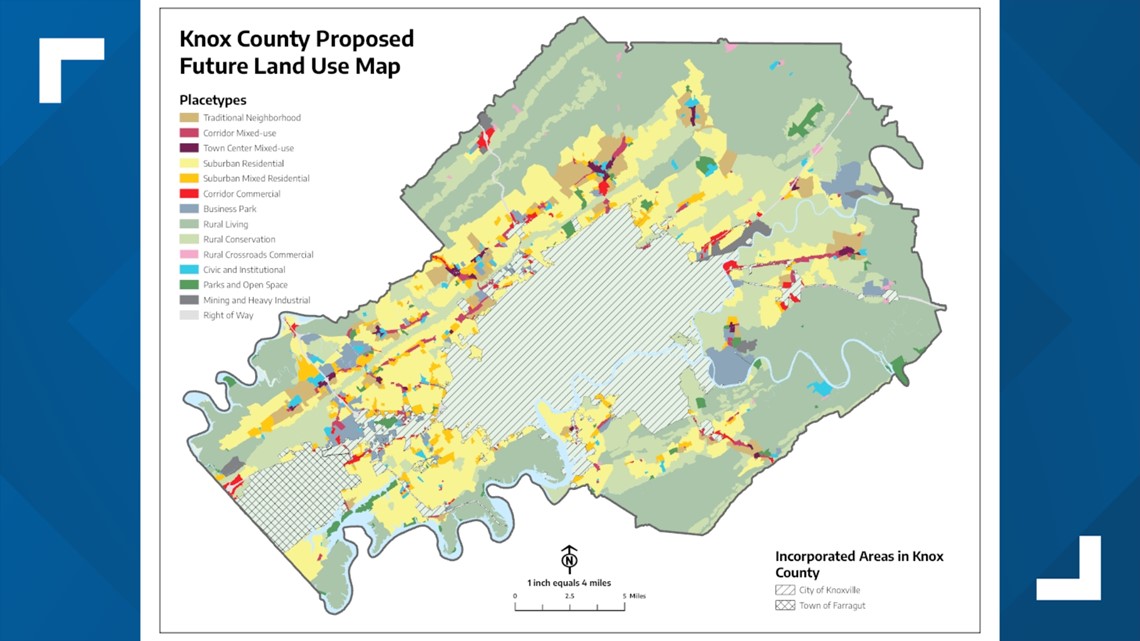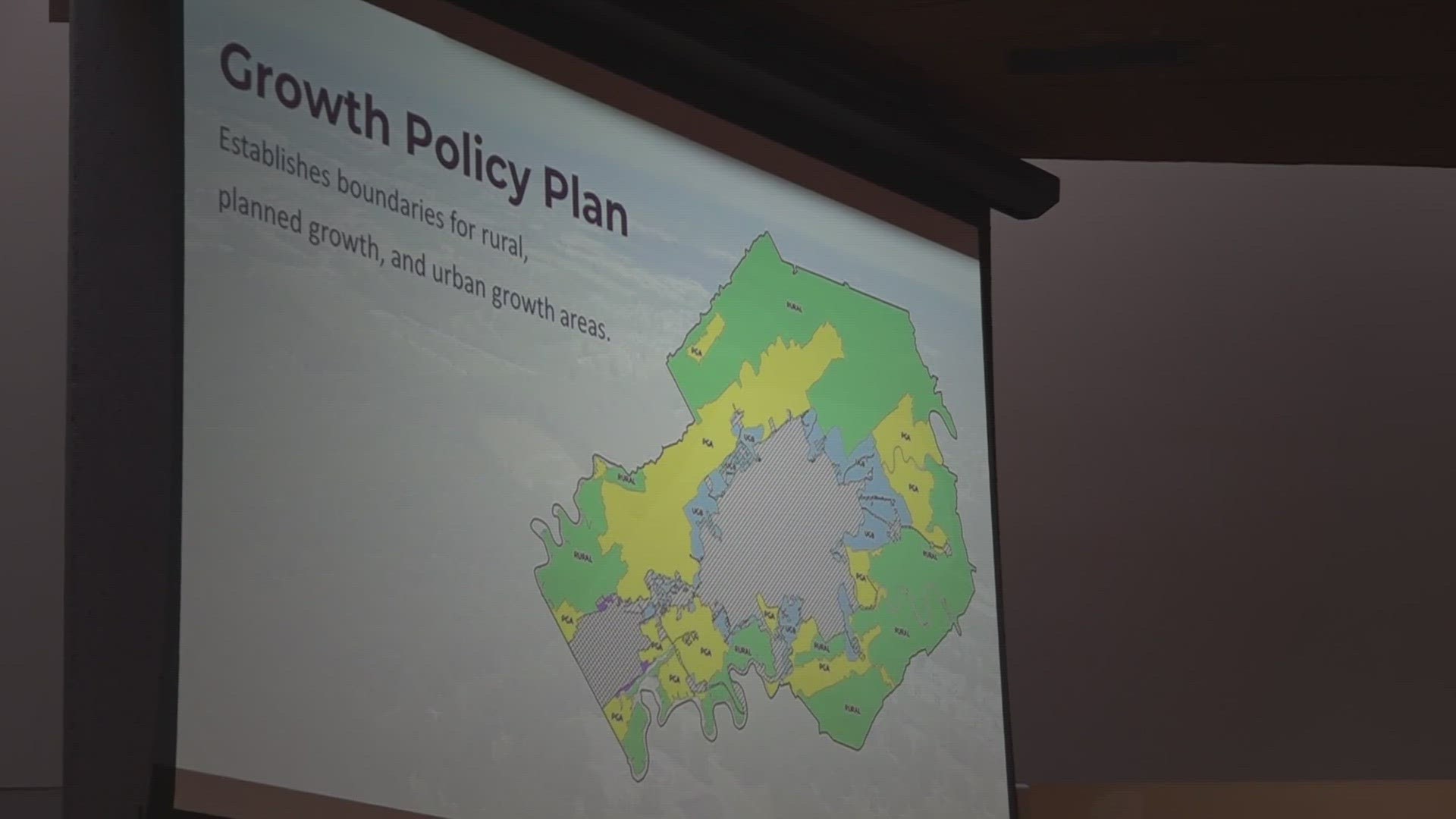KNOX COUNTY, Tenn. — The Growth Policy Coordinating Committee met for the fourth time on Wednesday and approved a plan that will guide decisions on land use and where developments can be built for decades to come in Knox County.
The plan will update the previous policy implemented decades ago. It came after years of work by Advance Knox, an initiative to collect community input and create a plan that accounts for future growth while also retaining the county's character. At Wednesday's meeting, rural areas of the county took the spotlight.
"Three months after we bought this property, somebody bought the property across the street. And immediately, 3,000 trees came tumbling down," said Dawn Close, a South Knox County neighbor. "All of a sudden, across the street, trees started coming down."
Across Close's South Knoxville property, a developer is planning to build new homes. She said she is worried the area has too little infrastructure and too much inconsistency per acre, which could lead to overpopulation issues in her area.
"It's overwhelming on these little, tiny country roads," said Close.


The plan hopes to address those concerns, and part of the discussion Wednesday night included South Knox County. The new plan proposes no longer using 320 acres of land in the areas and instead would allow the development of 256 acres along Chapman Highway. Some members of the committee also said they were worried about creating sprawl by allowing three dwelling units per acre.
Most of the plan proposes developing suburban residential areas across Knox County, featuring walkable areas filled with single-family homes. In between swaths of suburban residential areas are areas for mixed uses, as well as corridors for businesses.
"South Knoxville, what we tried to do as part of this plan is align growth with existing and proposed infrastructure," said Jim Snowden, who works with Advance Knox. "We are showing a little bit of growth along Chapman Highway."
The plan still needs approval by all of Knox County's leaders — the Knox County Commission, the Knoxville City Council and the Town of Farragut.
Snowden said commissioners will vote on the update in February. If passed, the City of Knoxville and the Town of Farragut will vote in March.

